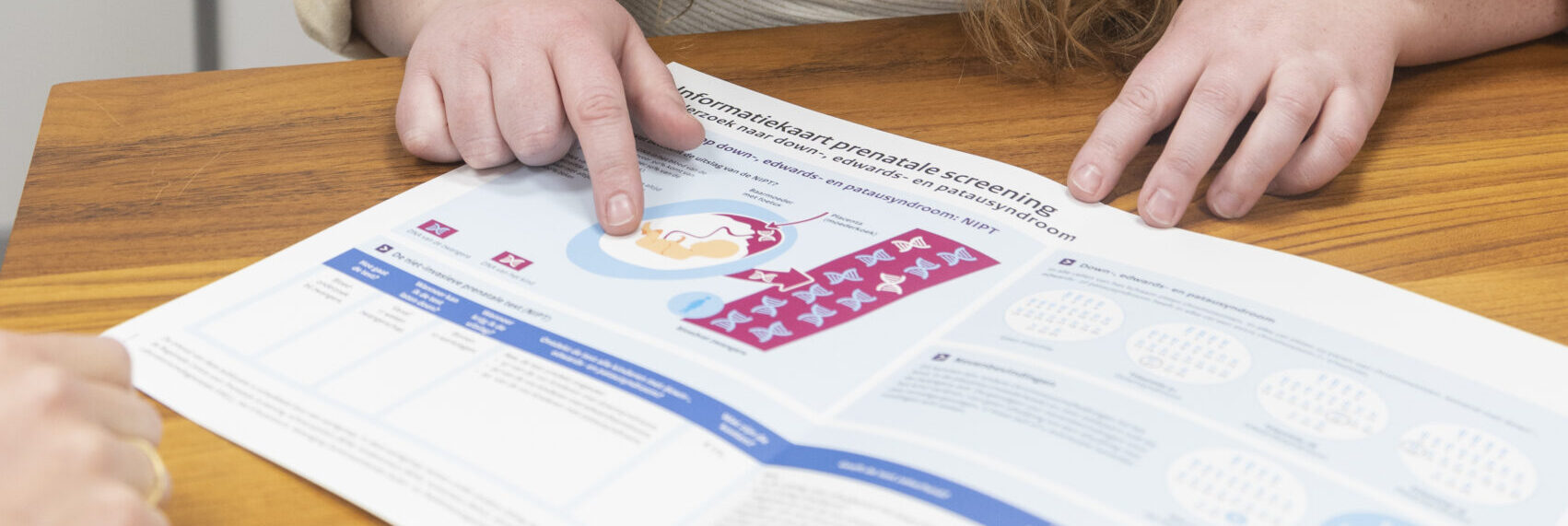020-8203474 | info@verloskundigeinamsterdam.nl

Prenatal screening
During pregnancy, various tests are available to detect a congenital abnormality in the baby. These tests are called prenatal screening. Comprehensive information, videos, and a decision aid can be found at this website. During the appointment with the midwife, we counsel about the different possible tests during pregnancy and provide an opportunity for you to ask questions. Prenatal testing is a choice and is not performed as a standard procedure. We are here to help you make an informed decision.
Screening for chromosomal abnormalities – NIPT
NIPT stands for: non-invasive prenatal test. It is to see whether the baby may have a chromosomal abnormality, like Downsyndrome. There are no treatments for chromosomal diseases.
The test involves taking blood from the mother, possible from 10 weeks of pregnancy. The blood is examined to determine whether the baby’s chromosomes are expected to be normal or abnormal. In NIPT, the mother’s blood is examined, containing cells from the placenta that resemble but are not identical to the baby’s cells.
If NIPT results show no indications of chromosomal abnormalities, no further investigation is needed. If there is a potential chromosomal abnormality, you will be referred to a gynecologist or a clinical geneticist. They will discuss extensive options for follow-up tests.
Since April 1, 2023, NIPT is covered by the national budget, and pregnant individuals do not need to pay for the test.
Screening for physical abnormalities – 13-week and 20-week ultrasound
Screening for physical abnormalities is conducted through ultrasound examinations. You can choose the 13-week and 20-week ultrasounds, both comprehensively examining the baby from head to toe. For example, the sonographer checks the heart, brain, kidneys, and overall baby growth. The placenta, umbilical cord, and the amniotic fluid around the baby are also checked. While ultrasounds can detect many physical abnormalities, chromosomal abnormalities like Down syndrome may not be visible. Occasionally, something seen on the ultrasound may need re-evaluation later in pregnancy for a conclusive diagnosis.
The 13-week ultrasound, available since September 2021, is covered by the national budget. There is an ongoing national scientific research, the IMITAS study, which aims to decide whether or not the 13-week ultrasound is a good addition to the prenatal screening programme. Participation in this ultrasound is only possible if you agree to participate in this study.
The 20-week ultrasound is also covered by the national budget, and there is no ongoing scientific research. This ultrasound provides a thorough examination, and if something is unclear, a follow-up ultrasound will be scheduled. The 20-week ultrasound also includes checking the baby’s gender if desired.
